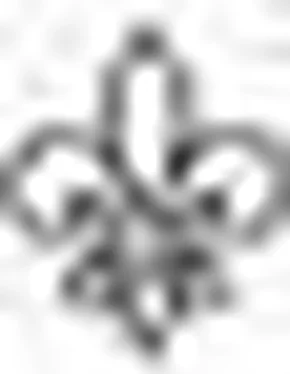T.F. Banks - The Emperor's assassin
Здесь есть возможность читать онлайн «T.F. Banks - The Emperor's assassin» весь текст электронной книги совершенно бесплатно (целиком полную версию без сокращений). В некоторых случаях можно слушать аудио, скачать через торрент в формате fb2 и присутствует краткое содержание. Жанр: Исторический детектив, на английском языке. Описание произведения, (предисловие) а так же отзывы посетителей доступны на портале библиотеки ЛибКат.
- Название:The Emperor's assassin
- Автор:
- Жанр:
- Год:неизвестен
- ISBN:нет данных
- Рейтинг книги:5 / 5. Голосов: 1
-
Избранное:Добавить в избранное
- Отзывы:
-
Ваша оценка:
- 100
- 1
- 2
- 3
- 4
- 5
The Emperor's assassin: краткое содержание, описание и аннотация
Предлагаем к чтению аннотацию, описание, краткое содержание или предисловие (зависит от того, что написал сам автор книги «The Emperor's assassin»). Если вы не нашли необходимую информацию о книге — напишите в комментариях, мы постараемся отыскать её.
The Emperor's assassin — читать онлайн бесплатно полную книгу (весь текст) целиком
Ниже представлен текст книги, разбитый по страницам. Система сохранения места последней прочитанной страницы, позволяет с удобством читать онлайн бесплатно книгу «The Emperor's assassin», без необходимости каждый раз заново искать на чём Вы остановились. Поставьте закладку, и сможете в любой момент перейти на страницу, на которой закончили чтение.
Интервал:
Закладка:
Rolles murmured that he was not.
“Did Jean Boulot leave this place in anger, monsieur le comte ?” Morton asked.
Eustache d'Auvraye was silent a moment, but his eyes were dark with thought and feeling. “I think it is best,” he said eventually, “that you direct this question to Monsieur Rolles, who was present at the interview.”
“His ostensible purpose,” Rolles began, “was to try to sell le comte d'Auvraye some goods from France-wine and other commodities. You are right, that was the name he gave: Jean Boulot.”
“He was a person of no reputation, no family, nothing at all,” murmured Eustache d'Auvraye. “ Monsieur le comte should never have received him.”
“I was not present for the entire interview, Monsieur Morton,” Rolles went on, “but he did ask that le comte d'Auvraye intercede for him. He wished to return to France, where he was once a minor artiste . He had fallen afoul of the police there and had fled to England. The count did not so much refuse as demur. He wished to know more of this Boulot, for he would not return the seditious to our country.”
“But did Boulot leave this house in anger, Monsieur
Rolles?”
“Anger? No, I don't think so.”
“But the count was angry. What else passed between them? Did Boulot offer some proof of Madame Des-marches's betrayal?”
At the mention of this name, the young gentleman balled a fist, which hovered for a second over the table. “I would ask that you not mention that woman's name in this house where my mother is mourning,” he said in a controlled voice.
“I'm sorry, monsieur le comte , but I am investigating three murders. Three murders that are likely connected. To solve one will almost certainly mean the solution of all.”
The count nodded once stiffly, but he was not happy with this response.
You are not back in France yet , Morton thought. Your word is not law here .
“Monsieur Rolles, what passed between the count and this man Boulot that caused the count so much agitation?”
“Monsieur Morton, I was not present for the entire interview. I was called out for a moment on another matter, and when I returned, the count had ordered Boulot removed.”
“And he was in a rage.” Rolles's gaze drifted over to his new employer for an instant. “He was distressed, yes.”
“And why was that?”
“I don't know, monsieur. He ordered me to go and eject… this woman you have named from her dwelling. You know what I then did.”
Morton nodded. “He gave you no indication of his reason for doing this?”
“No, and I did not question him.”
“What did you presume at the time? Why did you think the count did this?”
Again the hesitation, the eyes flicking toward his new employer. “I thought that this man Boulot must have said something to turn le comte against… this woman, but I knew not what.”
“But you were in the count's confidence. You told me as much.”
“As much as any man was, yes, but le comte d'Au-vraye was a private man, monsieur.”
Eustache d'Auvraye broke in. “Does it not appear to you, monsieur, that this Boulot was merely trying to gain access to le comte with murderous purpose? The unexpected presence of Monsieur Rolles may have restrained him on the occasion of which we speak. This morning, in Barnes Terrace, with the help of some republican scelerat -some thug, as you English might term him-he must have succeeded.”
Morton nodded. It was plausible enough. There remained a difficulty, however. And it was a difficulty that secretary Rolles would have to meet.
“How is it, Monsieur Rolles, that you made no reference to this visit of Boulot, when I wished to know the circumstances of the death of Madame Angelique Desmarches? How is it that Boulot's name was not amongst the considerable list of Bonapartists that you provided me on that occasion?”
“I did not know him to be a Bonapartist,” replied Rolles. “His troubles with the French police occurred while the French court was in exile. This would indicate the man was not a supporter of the Corsican.”
This had not really occurred to Morton, and he did not even begin to know how to address it. Houde had called Boulot a supporter of Bonaparte, yet the man was exiled to England through most of the Corsican's reign. Perhaps Houde was not wrong, and Boulot was merely a common criminal who had fled the French police. “Why did the count later send word to see me?”
“I do not know, monsieur.”
“But you wrote the note to Bow Street, did you not? And you even carried it to town?”
Rolles bowed slightly. “The count was considerably troubled, I believe, and meditated long, in private, before giving me this note. I did not ask, for he was clearly in some distress.”
John Townsend now stepped in, full of sympathy and conciliation. He apologised for Morton's plain-spoken manner and assured the count that it was only in the conduct of their duties that they were required to say disagreeable things, and that of course not the slightest hint of disrespect was intended toward the ladies of the house, and that all these enquiries would, of course, remain in the strictest confidence.
At these words the young count seemed to relax a little and waved his hand negligently. “This is not needed, monsieur. I am sure that an ability to ask unpleasant questions, without undue delicacy, is an advantage in your profession. In which case I ought to be grateful for present rudeness, in anticipation of future success.”
But Morton broke in.
“As messieurs have acknowledged the necessity for disagreeable questions, permit me to ask one more. Where were you, Monsieur Rolles, this morning? And who can avouch for it?”
The face of the little secretary reddened, and he began to draw himself up to retort. But it was the young count who turned to Morton with a calm smile.
“Monsieur Rolles passed last night under this roof, after delivering le comte d'Auvraye's message to Bow Street. He spent much of this morning with me, in discussions of a private nature. I vouch for him.”
Now Townsend again, mild and accommodating.
“Thank you. That is, of course, as much as is needed. Monsieur le comte , may I only ask, did you speak to your father before he went to Barnes yesterday? Did he say anything, related to matters of state or to any other subject, that might throw light upon subsequent events?”
There was now a slight hesitation before the son replied. “ Le comte d'Auvraye and I had some few words of a personal nature and not, I think, germane to your enquiries. I was not privy to his affairs of state or of other kinds. He did not… much honour me with his confidence. He was much more likely to speak to Monsieur Rolles on any such matters.”
“Were your…views different?”
Again, a short silence. Now the young count's smile was reflective. Morton wondered whether he was thinking of how to phrase his response or administering a quiet reproof for their probing so intimate a matter.
“The late gentleman and I were in unity on the fundamental need to restore the glory of France and of her royal family and nobility. We had some differences of opinion as to the most expeditious and honourable means of achieving this goal. But these differences were of little consequence, as I had no practical role in monsieur le comte 's undertakings.”
Was there bitterness in these phrases? Henry Morton was becoming more interested in Eustache d'Auvraye than he had quite expected to be.
“Would it be possible, monsieur le comte ,” John Townsend went on, “to speak to your mother or your sisters? They may perhaps have overheard something that will aid us.”
Читать дальшеИнтервал:
Закладка:
Похожие книги на «The Emperor's assassin»
Представляем Вашему вниманию похожие книги на «The Emperor's assassin» списком для выбора. Мы отобрали схожую по названию и смыслу литературу в надежде предоставить читателям больше вариантов отыскать новые, интересные, ещё непрочитанные произведения.
Обсуждение, отзывы о книге «The Emperor's assassin» и просто собственные мнения читателей. Оставьте ваши комментарии, напишите, что Вы думаете о произведении, его смысле или главных героях. Укажите что конкретно понравилось, а что нет, и почему Вы так считаете.











